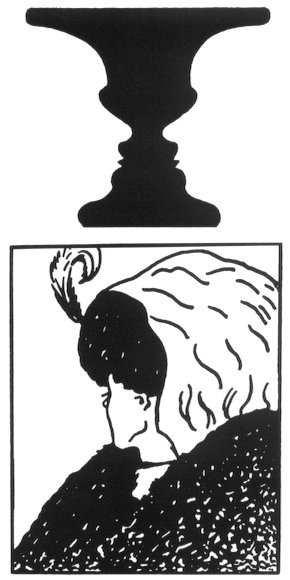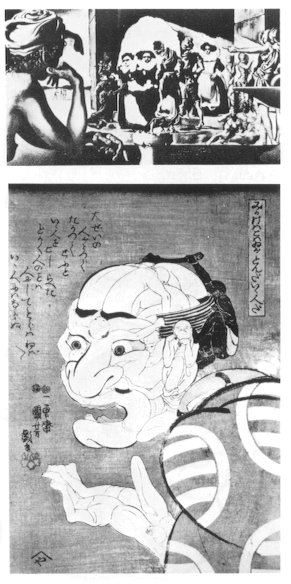|
2--Double views There is a famous figure called Rubin's Cup which is related to a problem of "sight" on a shape and its background. In other words, it looks to be either a cup or a person's face depending on whether you pay attention to the shape or its background. It is known that there are many types of these kind of figures when figures which cause reciprocal action like this are investigated. · Depending on whether a shape is seen or its background is seen, figures which have different meanings will appear respectively. This is called "double images". · In this case, the shape of the figure changes, or things which can't be seen appear by changing the point of view. Coexistence of normal and upside-down figures. · Reversal diagram in which a part of it appears to the front or withdrawing backwards by changing a point of view. - Reversal perspective illusion or others. Both of them are reversal diagrams related to the problem of "sight", and modern painters and designers prefer to use them. The technique of the reversal perspective was first
used in the work of Josef Albers. Since then, many artists have exhibited
works by adopting this principle. The paintings of Dali which described
the portraits of Voltaire, Lincoln, and others are famous for the double
image.
|

